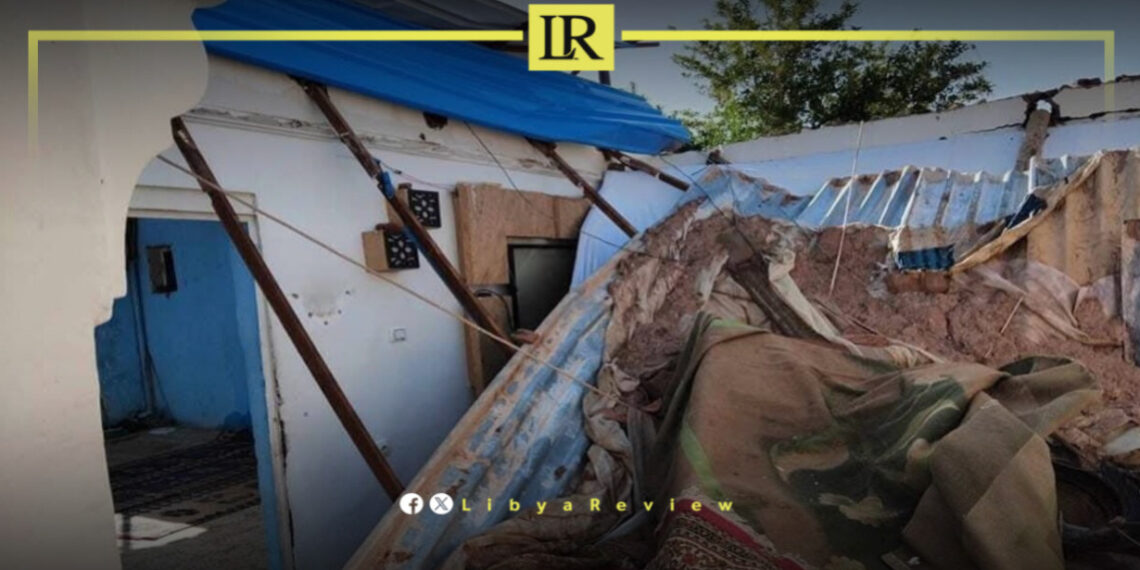On Sunday, catastrophic flooding struck the southern Libyan city of Sabha, leaving more than 3,000 homes destroyed and creating a dire humanitarian crisis.
The city, already struggling with underdeveloped infrastructure, was overwhelmed by torrential rains over the weekend, which turned streets into lakes and swamps. Residents are now grappling with widespread destruction, as homes collapsed under the weight of floodwaters, trapping families and leading to the tragic deaths of two people and injuries to 33 others.
Sabha’s Mayor, Belhaj Mohammed, has declared the situation in the city as “disastrous.” The heavy rains, compounded by a failing sewage system, left entire neighborhoods submerged under waters as deep as 1.5 meters in some areas.
“Our streets have become impassable lakes, and homes have collapsed on their owners,” the mayor said, highlighting the extreme challenges facing the city’s residents. Emergency services are overwhelmed, struggling to reach isolated areas due to the flooded roads, further delaying rescue efforts and the delivery of much-needed aid.
Adding to the crisis, the entire city has been plunged into darkness. More than 10 electrical transformers were damaged during the storms, leaving the city’s power grid inoperable.
With communications disrupted and power outages persisting, residents have been left cut off from the outside world, and their ability to seek help or coordinate relief efforts has been severely hampered. Mayor Mohammed warned that unless assistance arrives quickly, the already dire situation could escalate further.
Sabha, a critical city in the Fezzan region of southern Libya, has long been neglected by national development programs, particularly since the civil war. Its infrastructure was already fragile before the flooding, having suffered from years of underinvestment and neglect.
The ongoing conflict in Libya has only worsened the situation, leaving Sabha’s local government unable to implement necessary upgrades to the drainage systems, road networks, and public utilities.
The region is also strategically important, sitting at the crossroads of various trade and smuggling routes.
Yet, despite its importance, Sabha has often been overlooked when it comes to national reconstruction efforts. Years of instability, political division, and resource scarcity have left the city particularly vulnerable to natural disasters, as its basic infrastructure is ill-equipped to handle severe weather events.
In recent years, southern Libya has experienced increasingly severe weather patterns, with heavy rainfall and flash floods becoming more frequent. As global climate change intensifies, these extreme weather events are expected to worsen, further threatening cities like Sabha, where drainage systems and public services are nearly non-existent.
The current flooding disaster in Sabha has once again highlighted the critical need for investment in infrastructure and disaster preparedness in southern Libya. Mayor Mohammed called for immediate help from the national government, as well as international organizations, to provide urgent relief to those affected by the floods.
He also emphasized the long-term necessity of investing in infrastructure to prevent future catastrophes. Without significant support, the region risks further devastation from both natural disasters and the ongoing political turmoil in Libya.


